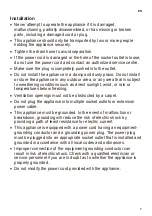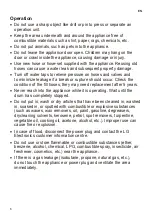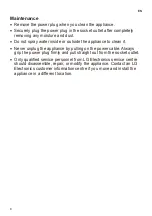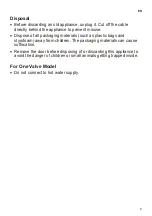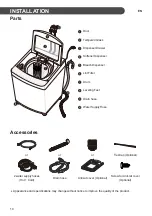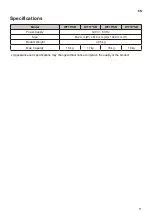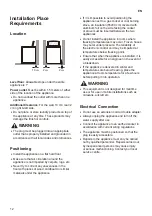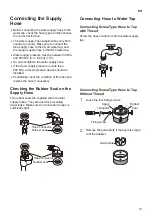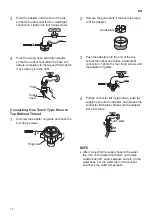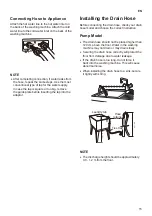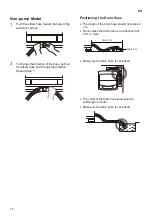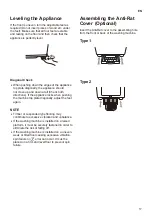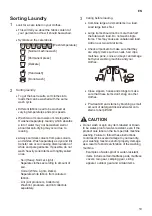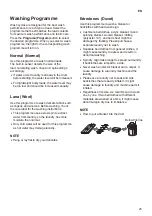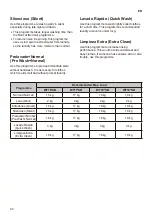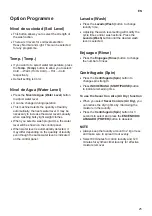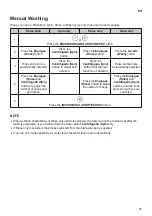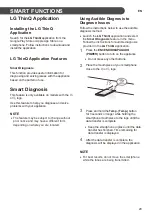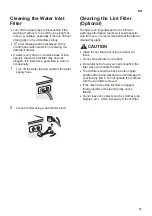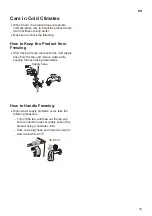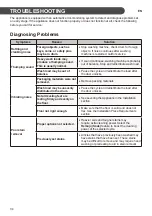
19
EN
Sorting Laundry
1
Look for a care label on your clothes.
•
This will tell you about the fabric content of
your garment and how it should be washed.
•
Symbols on the care labels.
[Wash temperature]
[Normal machine wash]
[Permanent press]
[Delicate]
[Hand wash]
[Do not wash]
2
Sorting laundry.
•
To get the best results, sort clothes into
loads that can be washed with the same
wash cycle.
•
Different fabrics need to be washed at
varying temperatures and spin speeds.
•
Wash two or more towels or knits together.
If washed separately, laundry which absorbs
a lot of water may not be washed well or
abnormal spin-drying may occur due to
leaning.
•
Always sort dark colours from pale colours
and whites. Wash separately as dye and lint
transfer can occur causing discolouration of
white and pale garments. If possible, do not
wash heavily soiled items with lightly soiled
ones.
−
Soil (Heavy, Normal, Light) :
Separate clothes according to amount of
soil.
−
Colour (White, Lights, Darks):
Separate white fabrics from coloured
fabrics.
−
Lint (Lint producers, Collectors):
Wash lint producers and lint collectors
separately.
3
Caring before loading.
•
Combine large and small items in a load.
Load large items first.
•
Large items should not be more than half
the total wash load. Do not wash single
items. This may cause an unbalanced load.
Add one or two similar items.
•
Check all pockets to make sure that they
are empty. Items such as nails, hair clips,
matches, pens, coins and keys can damage
both your washing machine and your
clothes.
•
Close zippers, hooks and strings to make
sure that these items don’t snag on other
clothes.
•
Pre-treat dirt and stains by brushing a small
amount of detergent dissolved water onto
stains to help lift dirt.
CAUTION
•
Do not wash or spin any item labeled or known
to be water-proof or water-resistant, even if the
product care label on the item permits machine
washing. Failure to follow these instructions
could result in severe damage to your laundry,
your washing machine and/or property damage
as a result of abnormal vibration of the washing
machine.
−
Examples of water-proof or water-resistant
items include certain mattress pads, mattress
covers, rain gear, camping gear, skiing
apparel, outdoor gear and similar items.

